
The new pool complex will include a six lane, 25 metre pool, a combined learner/diving pool, indoor leisure pools with rapids, flumes and outdoor waters, a health and fitness centre, café, crèche and flexible space for other activities.

The site, located adjacent to the existing Aquarena on the seafront and close to the town centre, presents an exciting development opportunity on a unique seafront site. the design aims to maximise the potential of the site with ‘ribbons’ of accommodation flowing from north to south to emphasise the connection between land and sea. Each pool form has its own terrace, opening up the façade to animate the beachfront elevation.

The dynamic, fragmented shape of the new leisure centre is arranged to respond to the surrounding mix of built forms and landscape. the fluid form reflects the fluid nature of the pools and the sea beyond, created by meandering extruded forms. the structure is clad in copper and red cedar - a palette of self-finished natural materials selected to age gracefully in the maritime conditions.

The façade integrates a series of substantial glazed panels, creating the effect of “picture frames” to the windows and roof-lights. Copper and timber are materials that are synonymous with the tradition of English seaside culture. These materials are also robust against the fierce coastal elements, complement each other aesthetically and are sensitive to the history of this beautiful seaside town.
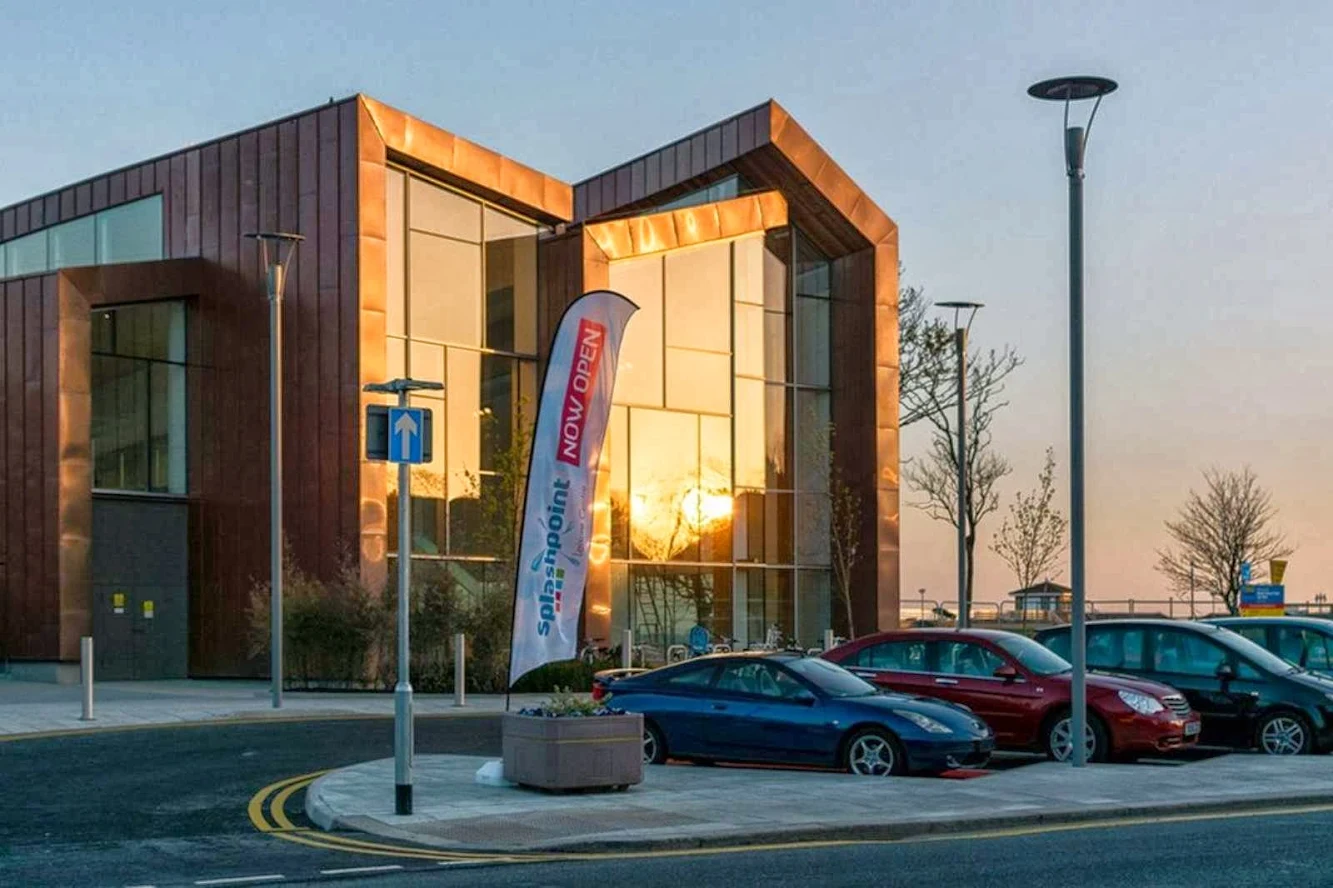
From the inside, the building is emphatically focussed towards the sea. the spans between the longitudinal ridges of the roof widen as the height of the building increases, running towards the sea and terminating in a series of glazed facades that directly overlook the water. the building has been raised so that from pool level, there is a powerful visual connection between the pool and the sea, creating the impression of an infinity pool.
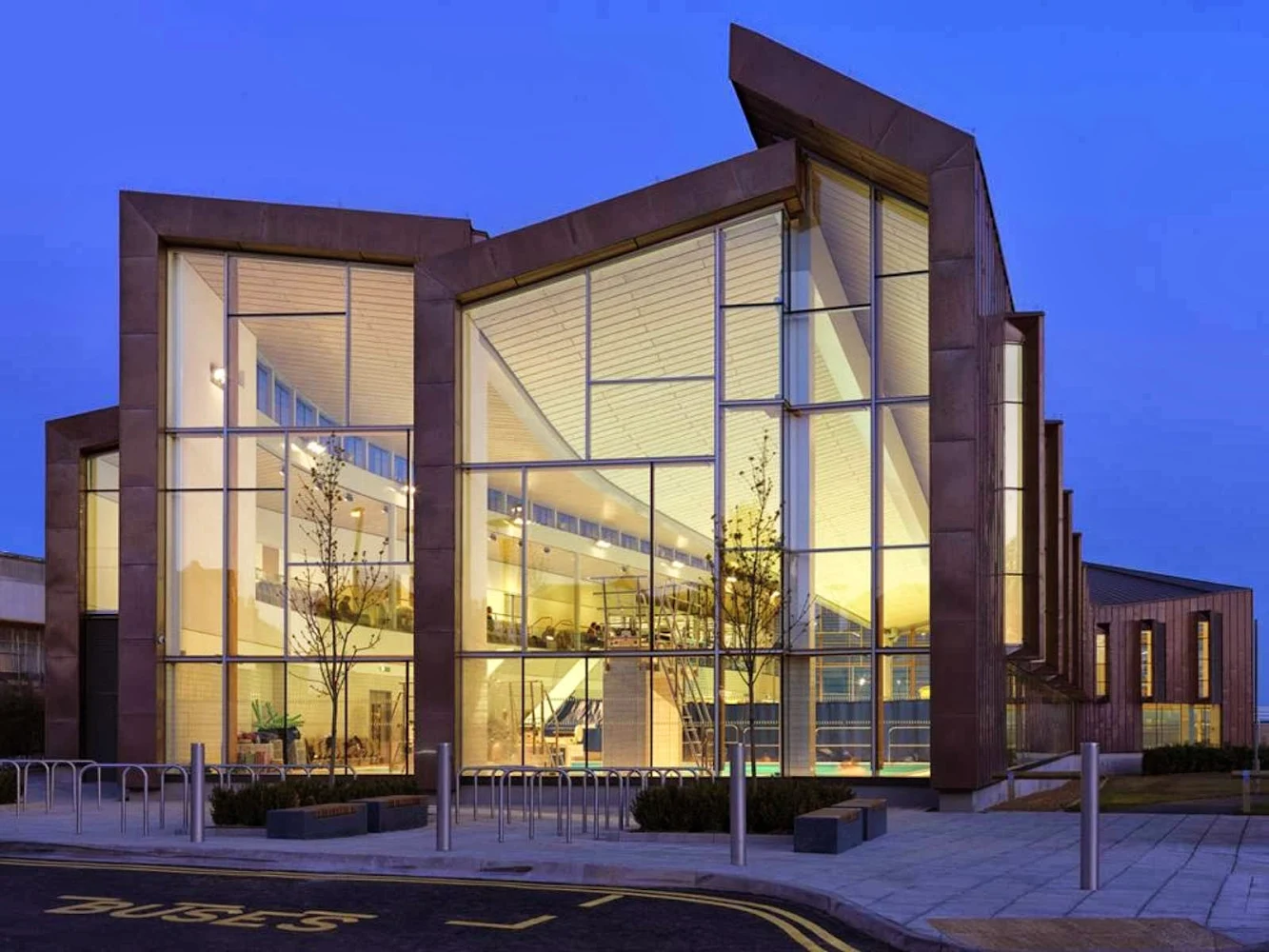
A palette of naturally finished copper and timber was selected for the envelope of the building as they are robust against the fierce coastal elements, require minimal maintenance, complement each other aesthetically and will age gracefully in the maritime conditions. These self-finished natural materials are synonymous with the tradition of English seaside culture and are sensitive to the history of this beautiful seaside town.
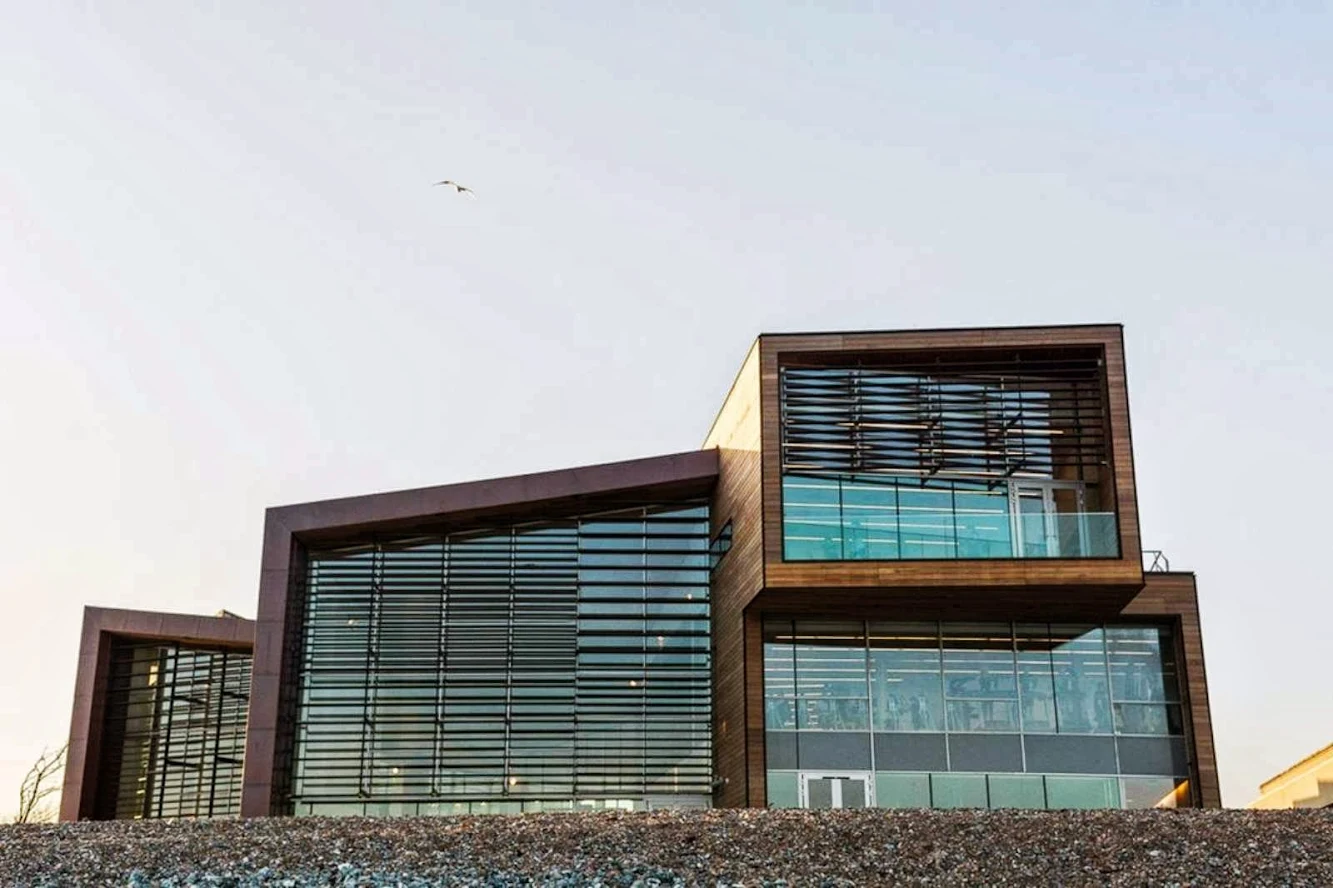
The use of robust materials is also used for the interior of the building, such as exposed concrete, painted plasterboard, timber and ceramic tiles. the internal material palette needs to be hard wearing and aesthetically pleasing to respond to the difficult environment; the frequency of use; frequency of deliveries; equipment movement and high humidity level in general.

The key structural element for the building is a long span (north-south), multi pitched curved and twisted roof. the roof structure is comprised of bespoke fabricated steel plate box girders derived from bridge technology. the profiles are shaped to reflect the roof geometry and to maximise the light coming through the clerestory glazing.

Between the primary beams, a spruce plywood timber deck is used to support the roof insulation and finishes farming the exposed soffit to the main pool areas. Timber is an ideal material for this difficult environment and the panels have been pre finished for minimal on site preparation.

Chris Wilkinson, Principal, Wilkinson Eyre Architects said: “Our building seeks to draw on forms already present in the town, taking on the undulating linearity of the ranks of surrounding terraced houses and the breakwater groynes on the beach. the building occupies a prominent location on the seafront, but rather than dominating the site in the style of a grand seaside pavilion, it sits informally, even playfully, within its setting.”

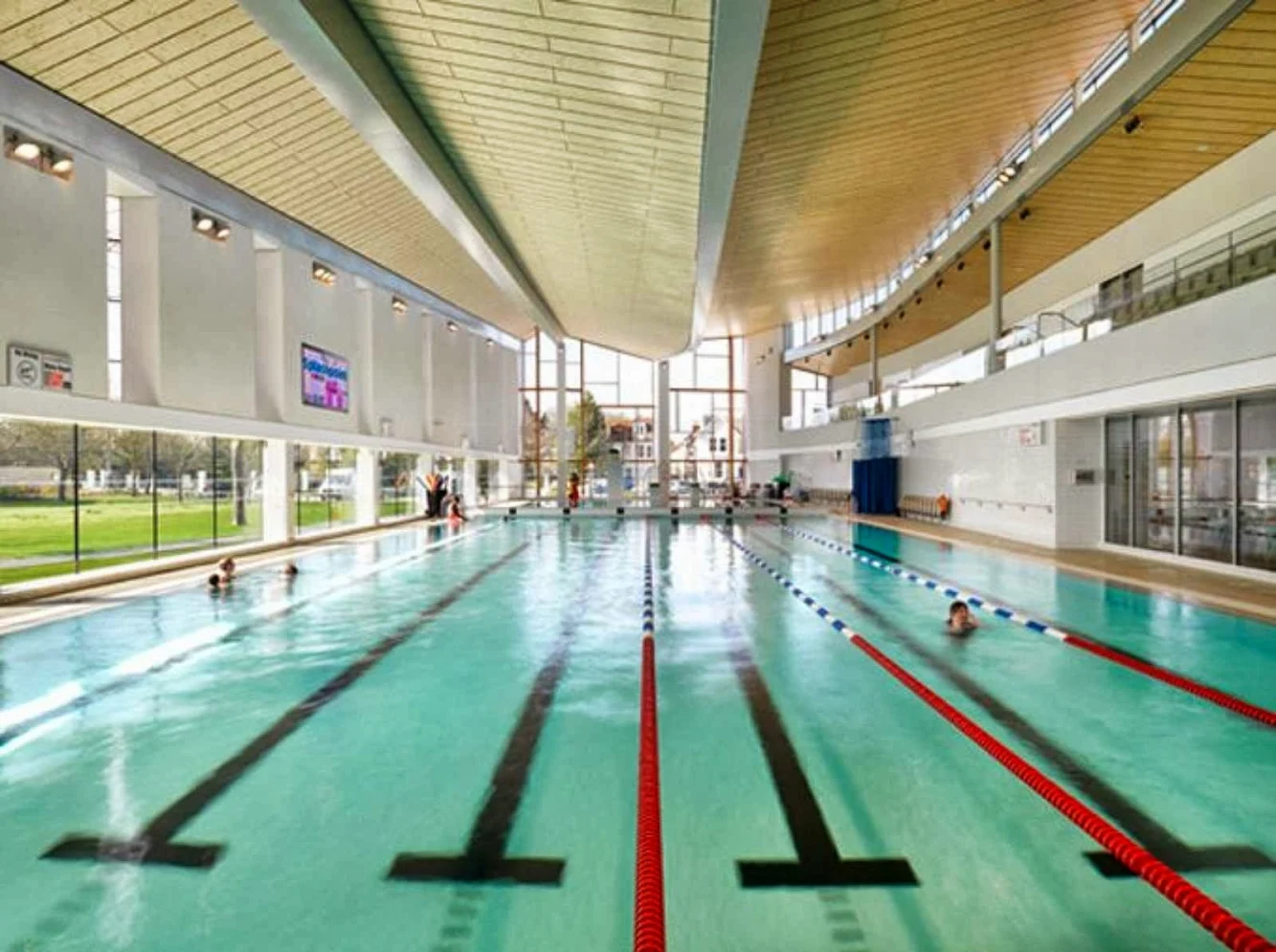

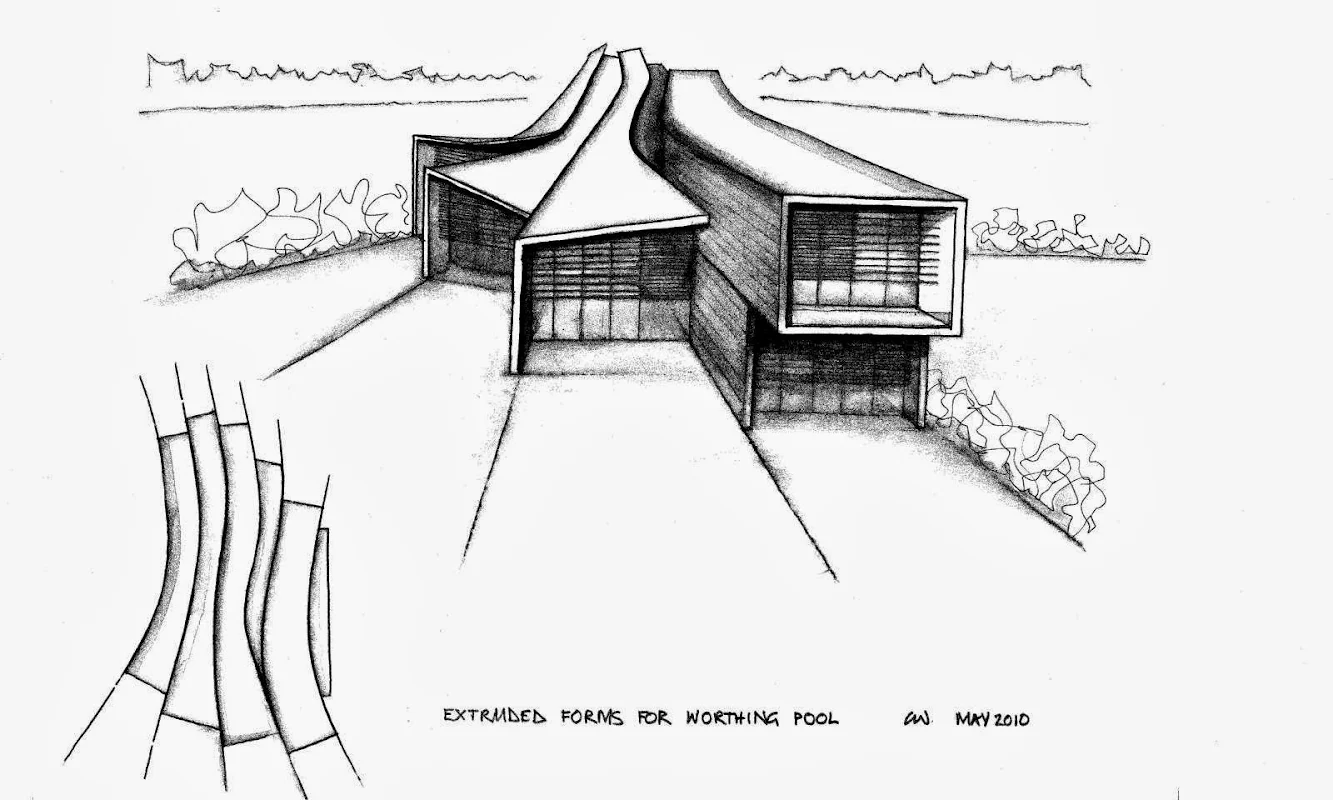
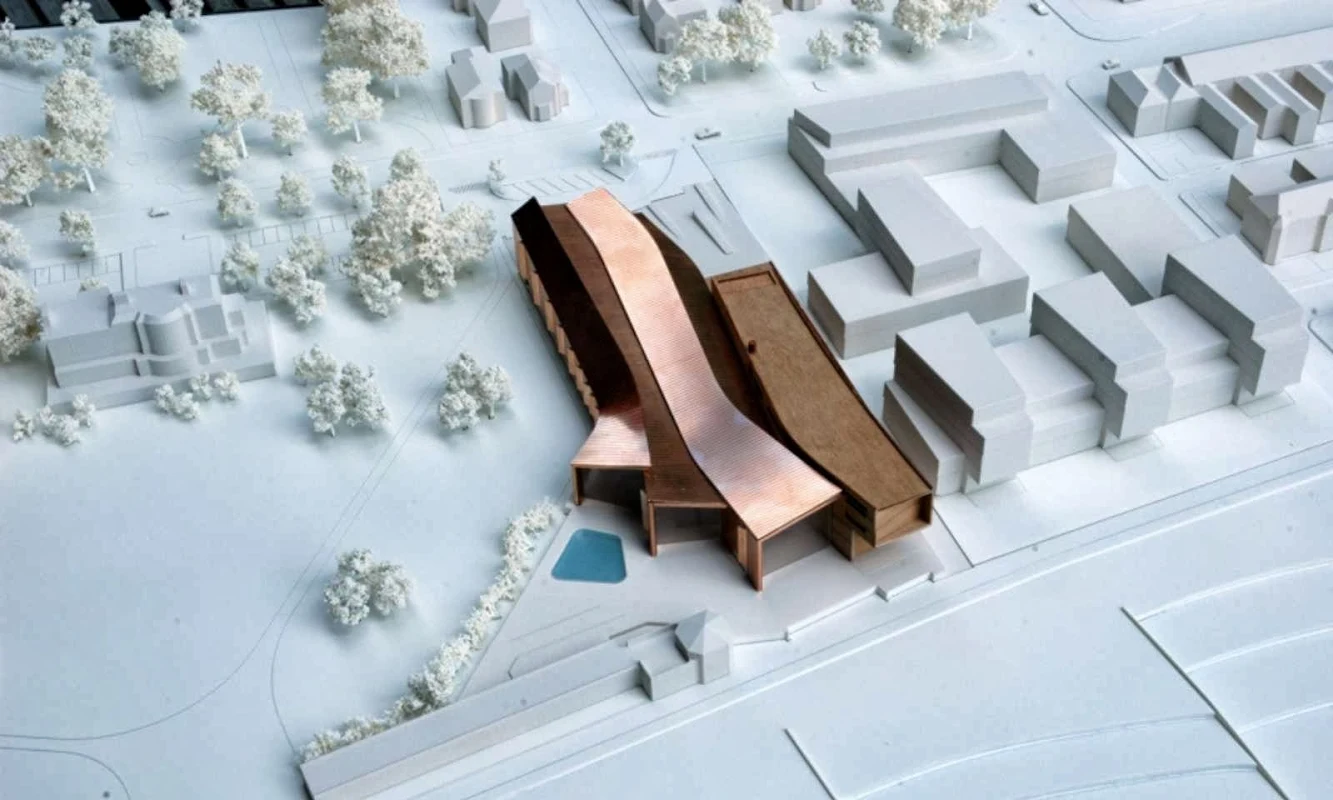

Location: Worthing, UK Architect: Wilkinson Eyre Architects Engineer: Aecom Quantity Surveyors: Davis Langdon Project Manager: Deloitte Real Estate Cost: £17 million Official opening: Thursday 20th June 2013 Client: Worthing Borough Council Photo: JulianAbrams Award: WorldArchitecture Festival 2013 Sport Category